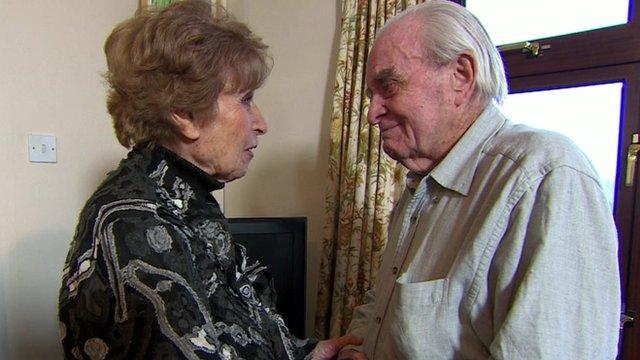Cross placed on lost grave of concentration camp survivor
- Published
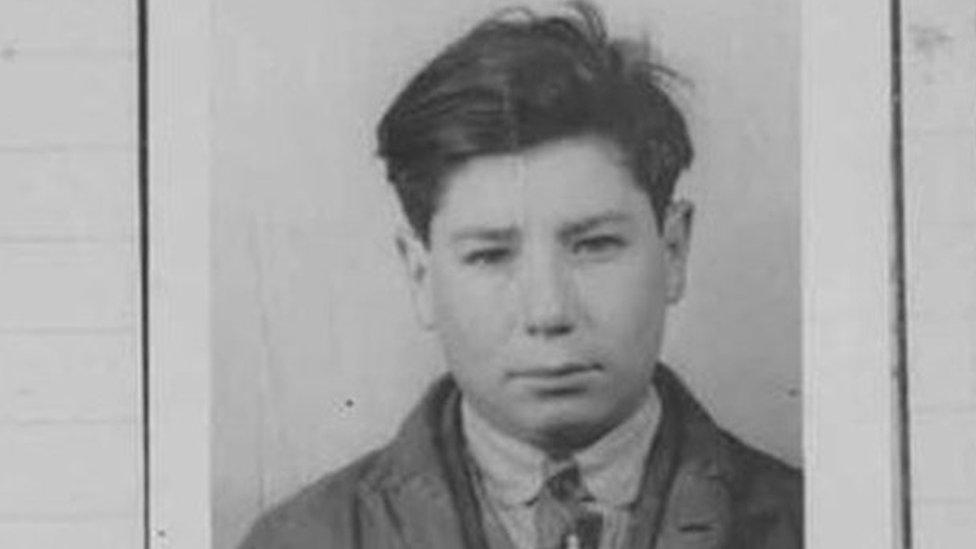
Frank Le Villio's occupation registration card shows he worked as a mechanic's apprentice
The grave of a Nazi concentration camp survivor which was unmarked for decades has been discovered and had a cross with a plaque placed on it.
Frank Le Villio was sent to World War Two Neuengamme and Sandbostel camps aged 19 after stealing a German officer's motorbike in occupied Jersey.
He survived and moved to Nottingham, but died aged 21 from tuberculosis.
A service, attended by members of his family and Nottingham's lord mayor, has been held at his grave to honour him.
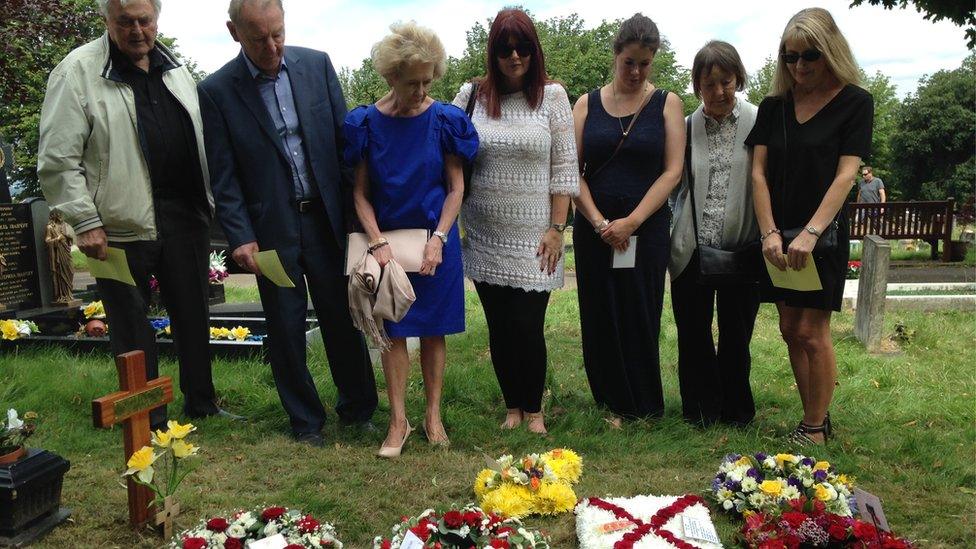
Members of Frank Le Villio's family at his grave
A wooden cross and several wreaths were laid on the grave where Mr Le Villio, from Jersey, and six other people were buried.
Mr Le Villio's cousin Stanley Hockley, from Jersey, was at the service at Wilford Hill Cemetery, Nottingham.
He said: "It has been absolutely wonderful finding his grave after 70 odd years.
"We did not know where he was buried to start with. We always thought about him."
He said the family was hoping to take him back to Jersey.
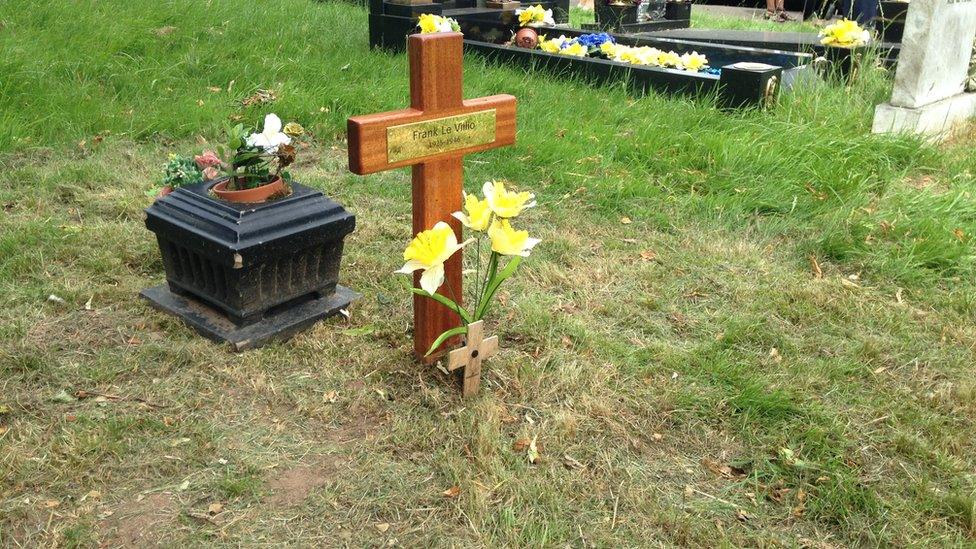
Mr Le Villio had developed tuberculosis while in the camps and was being treated at Nottingham's City Hospital when he died in 1946.
Mr Le Villio is believed to be one of the few camp survivors from Jersey who was able to return to the UK after the war.
He had developed tuberculosis while in the camps and was being treated at Nottingham's City Hospital when he died in 1946.
His grave was discovered earlier this year after an appeal, external by Devon-based Stanley Keiller, who came across Mr Le Villio's story and realised his grave's whereabouts was unknown when doing his own family history research.
Mr Keiller also attended the ceremony.
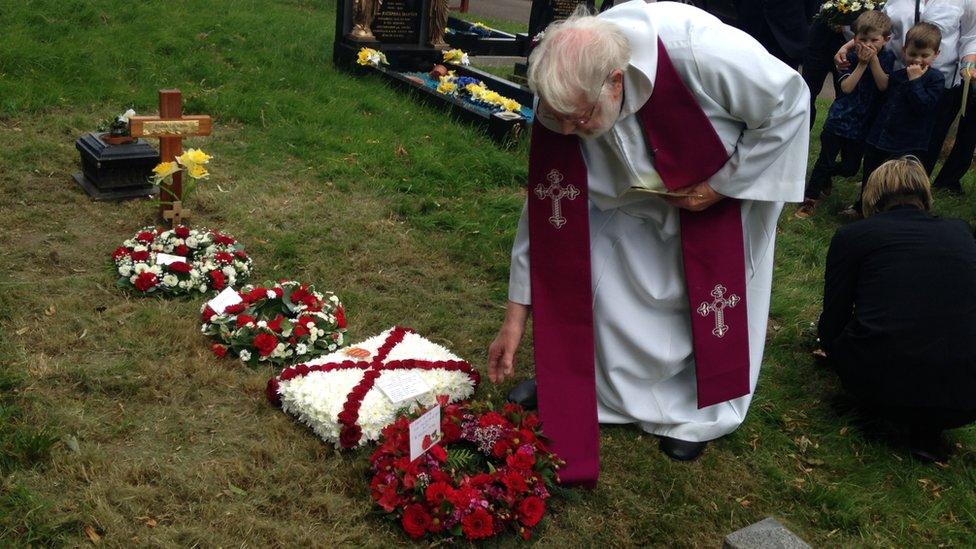
Father Derek Hailes, who answered Mr Keiller's appeal in the Nottingham Post
Mr Keiller's appeal was answered by Father Derek Hailes, of St Cyprian's Church, in Nottingham, who tracked down the pauper's grave a few months ago with the help of undertaker A. W. Lymn and church officials.
Father Hailes said he was very pleased to help track down the grave and said the service was "closure" for the family.
- Published10 May 2017
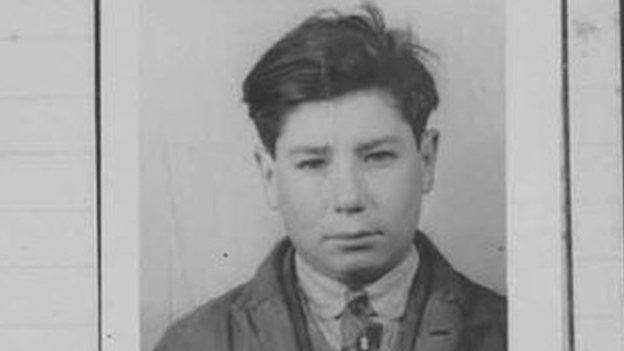
- Published31 October 2016
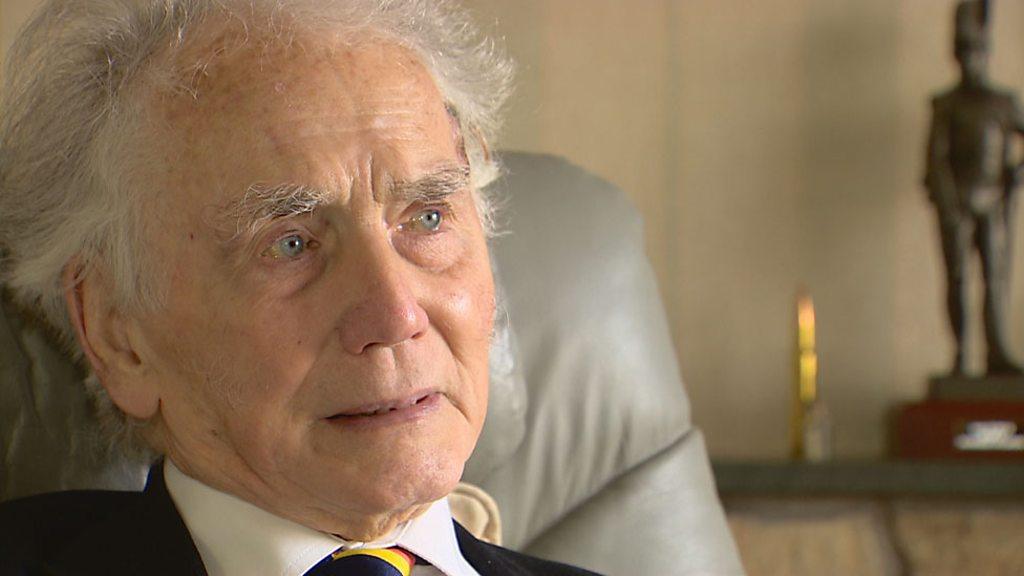
- Published29 May 2015
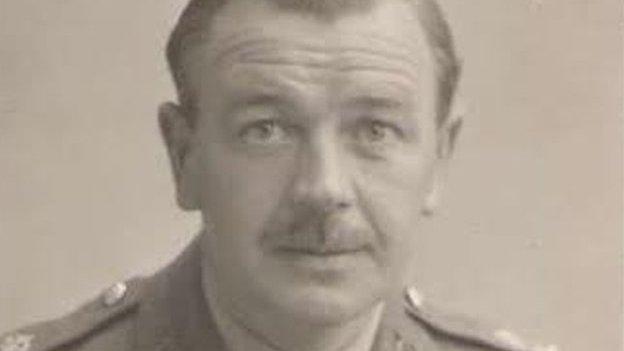
- Published15 April 2015
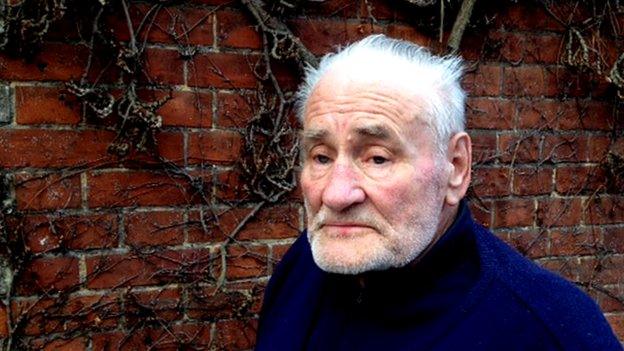
- Published15 April 2015
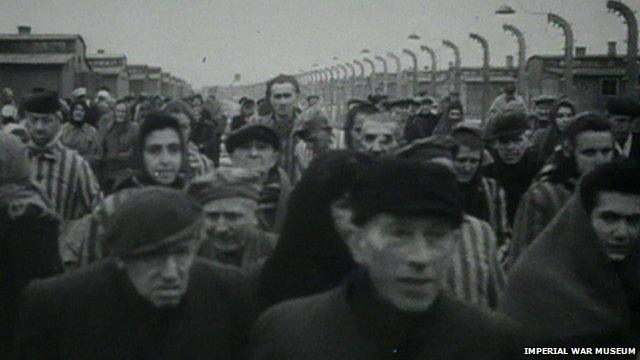
- Published10 April 2015
